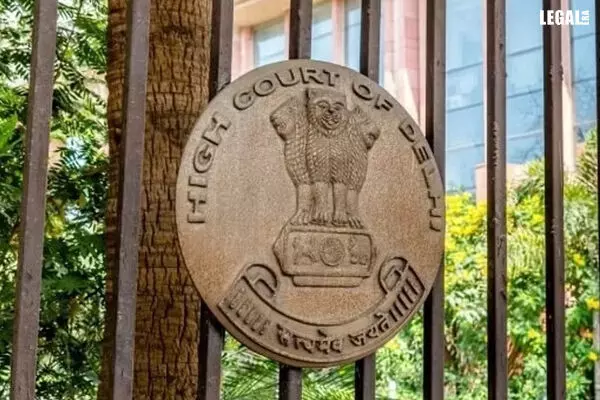- Home
- News
- Articles+
- Aerospace
- Artificial Intelligence
- Agriculture
- Alternate Dispute Resolution
- Arbitration & Mediation
- Banking and Finance
- Bankruptcy
- Book Review
- Bribery & Corruption
- Commercial Litigation
- Competition Law
- Conference Reports
- Consumer Products
- Contract
- Corporate Governance
- Corporate Law
- Covid-19
- Cryptocurrency
- Cybersecurity
- Data Protection
- Defence
- Digital Economy
- E-commerce
- Employment Law
- Energy and Natural Resources
- Entertainment and Sports Law
- Environmental Law
- Environmental, Social, and Governance
- Foreign Direct Investment
- Food and Beverage
- Gaming
- Health Care
- IBC Diaries
- In Focus
- Inclusion & Diversity
- Insurance Law
- Intellectual Property
- International Law
- IP & Tech Era
- Know the Law
- Labour Laws
- Law & Policy and Regulation
- Litigation
- Litigation Funding
- Manufacturing
- Mergers & Acquisitions
- NFTs
- Privacy
- Private Equity
- Project Finance
- Real Estate
- Risk and Compliance
- Student Corner
- Take On Board
- Tax
- Technology Media and Telecom
- Tributes
- Viewpoint
- Zoom In
- Law Firms
- In-House
- Rankings
- E-Magazine
- Legal Era TV
- Events
- Middle East
- Africa
- News
- Articles
- Aerospace
- Artificial Intelligence
- Agriculture
- Alternate Dispute Resolution
- Arbitration & Mediation
- Banking and Finance
- Bankruptcy
- Book Review
- Bribery & Corruption
- Commercial Litigation
- Competition Law
- Conference Reports
- Consumer Products
- Contract
- Corporate Governance
- Corporate Law
- Covid-19
- Cryptocurrency
- Cybersecurity
- Data Protection
- Defence
- Digital Economy
- E-commerce
- Employment Law
- Energy and Natural Resources
- Entertainment and Sports Law
- Environmental Law
- Environmental, Social, and Governance
- Foreign Direct Investment
- Food and Beverage
- Gaming
- Health Care
- IBC Diaries
- In Focus
- Inclusion & Diversity
- Insurance Law
- Intellectual Property
- International Law
- IP & Tech Era
- Know the Law
- Labour Laws
- Law & Policy and Regulation
- Litigation
- Litigation Funding
- Manufacturing
- Mergers & Acquisitions
- NFTs
- Privacy
- Private Equity
- Project Finance
- Real Estate
- Risk and Compliance
- Student Corner
- Take On Board
- Tax
- Technology Media and Telecom
- Tributes
- Viewpoint
- Zoom In
- Law Firms
- In-House
- Rankings
- E-Magazine
- Legal Era TV
- Events
- Middle East
- Africa
Injunction Issued: Delhi High Court Protects SUJATA Mark From Unfair Use

Injunction Issued: Delhi High Court Protects SUJATA Mark From Unfair Use
Introduction
The Delhi High Court delivered an order in the case of Mittal Electronics v. Shashi Kant Garg & Ors., addressing crucial issues of trademark infringement and interim relief. This decision demonstrates the court's attitude on preserving intellectual property rights, particularly in matters involving trademark infringement. In the present case, the plaintiff seeks an ad-interim injunction prohibiting the defendants from using the mark "SUJATA" or any other mark that is identical or confusingly similar, therefore infringing upon the plaintiff's registered trademark.
Factual Background
The plaintiff, Mittal Electronics, is a partnership firm that has been using the trademark "SUJATA" to manufacture, market, and sell a variety of household appliances and electrical devices since 1980. The plaintiff has secured ownership for the mark "SUJATA" in addition to registrations for the mark under a number of classifications.
The defendants, Shashi Kant Garg & Ors., were discovered to be using the same mark "SUJATA" for allied and cognate goods, especially pressure cookers that are identical to the plaintiff's products.
Procedural Background
The plaintiff asked for a permanent injunction that would prevent trademark infringement, unfair trade practices, passing off, and competition, as well as damages, delivering up, and account rendition. The defendants were accused of violating the plaintiff's trademark.
Issues Involved
1. Trademark Infringement: Whether the defendants' actions constitute infringement of the plaintiff's trademark.
2. Interim Relief: Whether the plaintiff is entitled to ad interim injunction against the defendants.
Contentions of the Parties
Plaintiff's Contentions: The plaintiff argued that the defendants' actions infringe their trademark rights and sought interim relief to prevent further infringement.
Defendants' Contentions: None, as the defendants did not appear to contest the suit.
Reasoning and Analysis
The plaintiff's pleadings and arguments were examined by a bench of Justice Saurabh Banerjee, who observed that the defendants had adopted and started using the plaintiff's registered trademark "SUJATA," making it deceptively similar to the plaintiff's trademark. The court further observed that the defendants' decision to use the same mark, and in a similar category, as the plaintiff's, reflects their malafide intent to capitalize on the plaintiff's well-established name and goodwill.
Final Decision
The plaintiff was granted an ex parte ad interim injunction by the Delhi High Court, which restricted the defendants from using the mark "SUJATA" or selling any goods under that mark or any other mark that is confusingly similar to the plaintiff's registered trademark "SUJATA."
The matter is listed to be heard on 13 October, 2025.
Law Settled
This judgment highlights the importance of protecting trademark rights and the need for strict enforcement of trademark laws to prevent infringement and protect the exclusive rights of trademark owners.
In this case the plaintiff was represented by Mr. Manish Biala and Mr. Devesh Ratan, Advocates.



